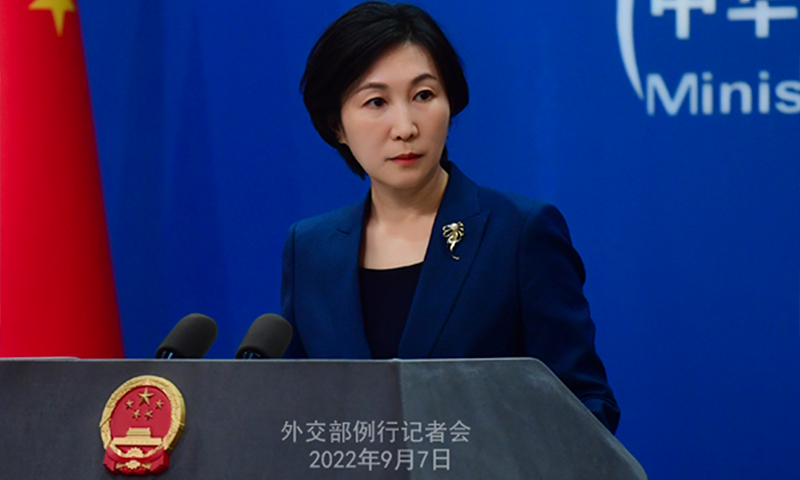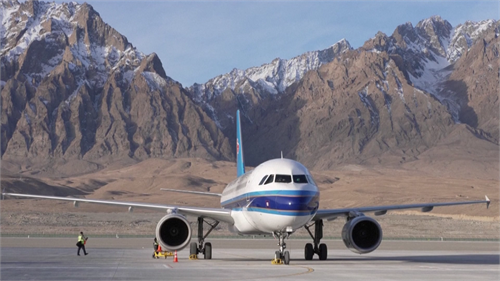US' illegal confiscation of Xinjiang products destabilizes global supply chain, will ultimately harm itself: Chinese FM

Foreign Ministry Spokesperson Mao Ning Photo: Ministry of Foreign Affairs
The US' use of the non-existent "forced labor" issue as an excuse to illegally confiscate products from China's Xinjiang Uygur Autonomous Region destabilizes the international supply chain, and will ultimately harm the interests of the US itself, said the Chinese Foreign Ministry on Thursday, warning that China will take necessary measures to defend the rights of Chinese enterprises.
The remarks were made after Bloomberg reported Thursday that the US is beginning to confiscate imports of aluminum products suspected of "being made through forced labor," particularly from the Xinjiang region, quoting one of the world's biggest shipping firms Maersk.
The US Customs and Border Protection (CBP) has begun issuing confiscation notices on aluminum products under the so-called Uyghur Forced Labor Prevention Act (UFLPA), according to a notice through Maersk's official website.
A spokesperson from Maersk told the Global Times on Thursday that the notice is just a routine notification to remind customers of the latest legislation from the US.
Chinese Foreign Ministry spokesperson Mao Ning said on Thursday that the US is once again using the non-existent issue of "forced labor" in the Xinjiang region as an excuse to politicize normal economic and trade cooperation.
"China will take the necessary measures to firmly defend the legitimate rights and interests of Chinese enterprises," she said.
The spokesperson stressed that the US' illegal confiscation of products from the Xinjiang region violates international trade rules and destabilizes the international supply chain, and will ultimately harm the interests of the US itself.
Aluminum and items made from the metal have joined cotton, tomatoes and polysilicon in coming under scrutiny over links to the Xinjiang region after the CBP in late December and early January began issuing confiscation notices, naming aluminum as a fourth product, Bloomberg reported. The enforcement falls under the UFLPA signed by US President Joe Biden in late 2021.
Considering that US Secretary of State Antony Blinken is reportedly planning a China visit in the near future, it is not surprising that the US has suddenly intensified its crackdown on Xinjiang products, Wang Jiang, an expert at the Institute of China's Borderland Studies at Zhejiang Normal University, told the Global Times. "The US has once again pulled a card out of nowhere to pressure China, a routine tactic in US diplomacy."
However, since the US passed the UFLPA, it has never presented proof of even a single case involving "forced labor" in Xinjiang, but only "a presumption of guilt," Wang noted.
"Judging from the current market situation, I am confident that the domestic Chinese market is capable of absorbing most of the aluminum and aluminum products from Xinjiang… The local government is also expected to issue some policies to help the affected companies."
The US is trying to force China out of the global industrial chain, but not only is this difficult to do, its excessively high costs are also ultimately passed on to consumers, especially those in the US, observers noted.
The expert noted that Xinjiang has recently organized a series of site visits by foreign dignitaries, especially officials from countries involved in the Belt and Road Initiative, giving many countries a glimpse of what is really going on in Xinjiang, even with the stigma imposed by the US.
"As the US tries to revamp its supply chain, China is adjusting its markets accordingly to ensure its quality products find a new outlet," Wang said.

